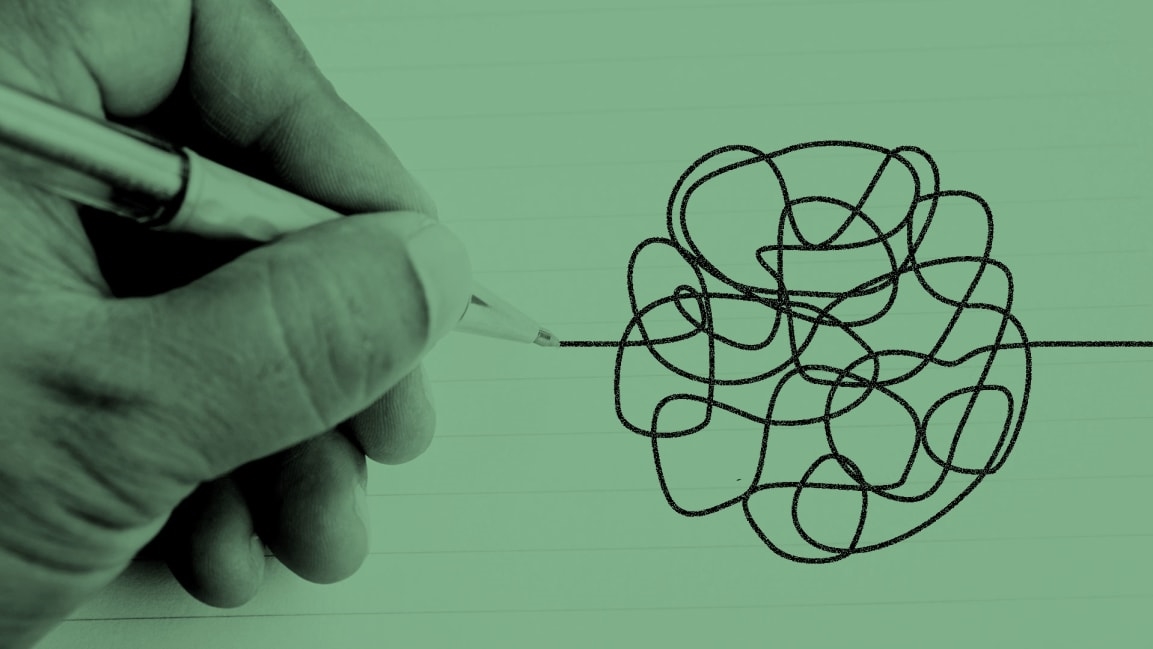How to draw the line between preparation and procrastination
To prepare for his haunting role in The Pianist, actor Adrien Brody broke up with his girlfriend, lost 30 pounds, sold his car, gave up his New York apartment, and moved to Europe with just two bags. He also studied piano and dialects and stopped socializing. Brody ended up winning the 2003 Academy Award for Best Actor in a Leading Role, although he told The Guardian that his mental health suffered the following year.
We often hear how extreme preparation gives film stars and Olympic athletes a winning edge. In business, however, the lines are blurrier. Starting a company without any planning is dangerous. And launching a major project with zero forethought is rarely a wise move. At the same time, spending too much time getting your ducks in a row can slow down innovation, or prevent you from taking action in the first place.
There’s a sweet spot between action and preparation—and it looks a little different for everyone. Here’s how to find that intersection for yourself.
Explore your impulses
If you want to start a business, it’s smart to write a business plan and study your market smart steps to take. However, once you’ve conducted 200 customer interviews, read 30 books, and attended more conferences than you can count, it’s time to step back. If we’re honest with ourselves, most of us know when we’re spinning our wheels.
I started my company, JotForm, in 2006. Looking back, I spent lots of time on tasks that didn’t matter. Sometimes I struggled with procrastination, but more often, I was avoiding the meatier work of entrepreneurship. Once I saw this pattern, I asked myself, what was I avoiding? Understanding my urge to delay allowed me to create an action plan.
Instead of trying to push through the resistance, examine why you’re not moving forward. Do you really need more time or information? Would it truly make a difference? If you’re procrastinating, what’s the core reason?
There are typically four reasons why we procrastinate—and identifying yours can make it easier to decide whether it’s time to wait or time to act.
1. You feel stuck
Humans crave instant gratification. It’s coded in our DNA. But laying a foundation takes time. If it feels like you’re not progressing, you’re either impatient or stuck in the prep stage—and both can lead to procrastination.
Look at the end of your diving board. What must be in place before you jump? Then work backwards. Break the tasks up into small, manageable pieces. Celebrate each win and keep going. If you already have what you need, trust that launching yourself forward will end those feelings of impatience.
2. You’re overwhelmed
In the early days of my business, I often stared blankly at my to-do list, unsure of what to tackle next. Sometimes, that meant that I didn’t do anything at all. First, remember that this reaction is normal. Our minds can only handle so many inputs before they short-circuit.
Next, try this technique from Amy Jen Su, cofounder of executive coaching firm Paravis Partners. To fight the paralysis of task overload, Su asks her clients to answer two questions:
- What is my highest contribution?
- What am I passionate about?
Prioritize the point where your answers intersect. Think carefully about the word “passion”—today’s culture glorifies the concept, but passion doesn’t mean continuous, unbridled joy. Work is still, well, work. Swap in “fascination” instead. Fascinating projects will inspire you to dig into the minutiae and give you the drive to tolerate the not-so-great parts. That’s your sweet spot right there.
3. You’re afraid to fail
Fear of failure often shows up as “productive procrastination.” Here’s where preparation masquerades as diligence. If you keep delaying launch dates or waiting to perfect one element, bells should be ringing. You’re likely procrastinating. At the same time, fear of failure can also lead us to stick our heads in the sand and avoid necessary groundwork.
Only you can know the difference, but it might help to consider a 2014 paper by researchers Kathrin Krause and Alexandra M. Freund, published in European Psychologist. In short, the pair suggest that a process focus—concentrating on steps and means, instead of outcomes—can reduce the urge to procrastinate when our fear of failure is high.
4. You dislike the work itself
Breaking new ground isn’t easy. Inevitably, you’ll enjoy some parts more than others. When you hit a low point, you can push through or outsource. Delegation isn’t always possible when budgets are tight, but there are usually other options. Trade services with a friend or colleague, start saving money for basic support, or find tools and apps that can automate tasks you dislike.
If you just have to get it done, flip the model I shared from Krause and Freund. Focus on the outcome. The researchers found that when the task itself feels unpleasant, fixating on the result can minimize procrastination. We can harness our vision to jump-start motivation.
Most importantly, be honest with yourself. Procrastination often means you’re ready—you just need to decide to take the first step. And if you’re avoiding the necessary prep and validation work, consider whether it’s the right move at all. Excitement doesn’t last forever, and it’s better off quitting a project early rather than force yourself to complete something half-heartedly. Save your energy for the things that truly matter to you.
Aytekin Tank is the founder of JotForm, a popular online form builder. Established in 2006, JotForm allows customizable data collection for enhanced lead generation, survey distribution, payment collections and more.
Fast Company , Read Full Story
(18)



